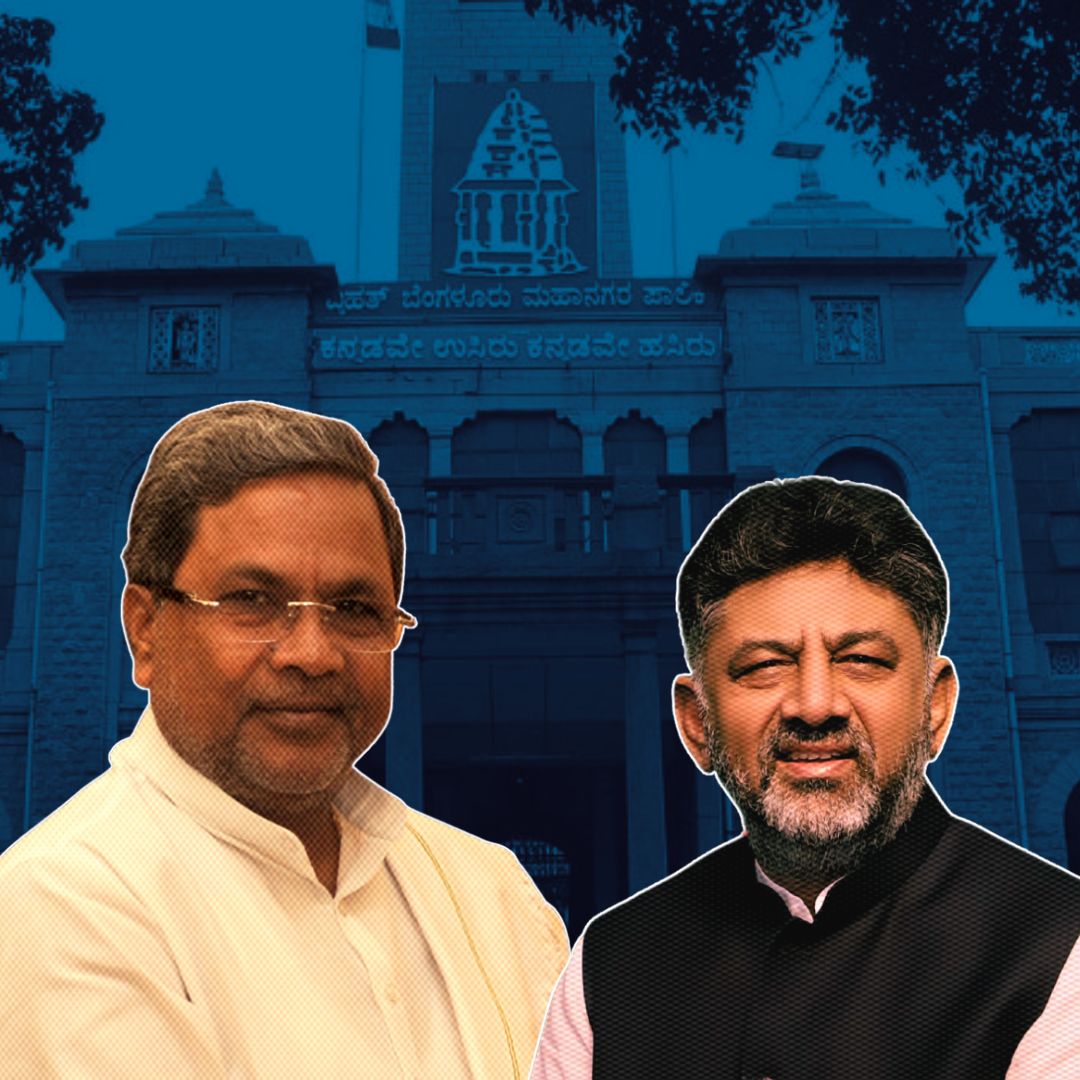Bengaluru’s civic administration is set for a historic overhaul as the Bruhat Bengaluru Mahanagara Palike (BBMP) will be replaced by the Greater Bengaluru Authority (GBA) from May 15, 2025.
The Karnataka government’s implementation of the Greater Bengaluru Governance Act, 2024, will decentralise the city’s governance by splitting it into multiple municipal corporations, each with its own mayor and council.
Chief Minister Siddaramaiah will serve as chairman of the GBA, with Deputy Chief Minister DK Shivakumar as vice-chairman. While the government claims this will bring efficiency and accountability, opposition parties and civil society groups have voiced concerns over delays in local elections and the risk of centralised power.
Bengaluru’s Civic Landscape Transformed: What’s Changing?
The new Greater Bengaluru Authority will oversee an area of 709 sq km, currently managed by the BBMP, but will introduce a three-tier system: the GBA at the apex, multiple city corporations, and empowered ward committees.
According to the Act, Bengaluru will be divided into up to seven corporations, each with its own administrative machinery. The city’s number of wards is expected to increase from 225 to as many as 300, pending a fresh delimitation exercise. Bengaluru Development Minister Dinesh Gundu Rao stated, “This reform is essential for a city of Bengaluru’s size and complexity.
Smaller corporations will bridge the gap between citizens and administrators, making governance more responsive and participatory.” To manage the transition, senior IAS officer Maheshwar Rao has been appointed as interim chief commissioner, tasked with ensuring a smooth handover and continuity of civic services.
Decentralisation or Delay? Stakeholder Reactions and Concerns
The move to restructure Bengaluru’s civic administration has been years in the making, with experts and urban planners long advocating for decentralisation to address the city’s rapid growth and mounting civic challenges. The Greater Bengaluru Governance Act, passed in March 2025 and signed by the Governor in April, is seen by many as a bold step towards modernising urban governance.
However, not all stakeholders are convinced. Opposition leaders, including BJP’s R Ashoka, have criticised the Act as “unscientific” and warned it could lead to “uneven growth” across the newly formed corporations. Civil society groups and resident welfare associations have expressed apprehension about the delay in municipal elections, which have been pending since 2020 and are now unlikely to be held before late 2025 or early 2026.
Some groups are even considering legal action, arguing that the delay undermines grassroots democracy and accountability. The government, meanwhile, has promised to support weaker corporations financially and to incorporate feedback from all stakeholders during the transition.
The Logical Indian’s Perspective
The creation of the Greater Bengaluru Authority marks a pivotal moment in the city’s journey towards better governance. Decentralisation, if implemented transparently and inclusively, can empower local communities and improve service delivery. However, the government must guard against using this transition as a pretext for delaying much-needed local elections or centralising power in the hands of a few.
The success of this reform will depend on timely elections, robust public participation, and a genuine commitment to equitable development across all parts of Bengaluru.
As Bengaluru embarks on this new chapter, how can citizens, civic groups, and officials work together to ensure that the GBA delivers on its promise of accountable and inclusive governance? What safeguards should be put in place to protect local democracy and ensure no community is left behind?
A big step towards decentralized urban governance From tomorrow, the Congress govt’s Greater Bengaluru bill comes into effect, thanks to the leadership of CM Shri @siddaramaiah avaru and DCM Shri @DKShivakumar avaru.
— Mansoor Khan (@MansoorKhanINC) May 14, 2025
Splitting BBMP into multiple corporations is a visionary move… pic.twitter.com/6MFl2kvp3d












